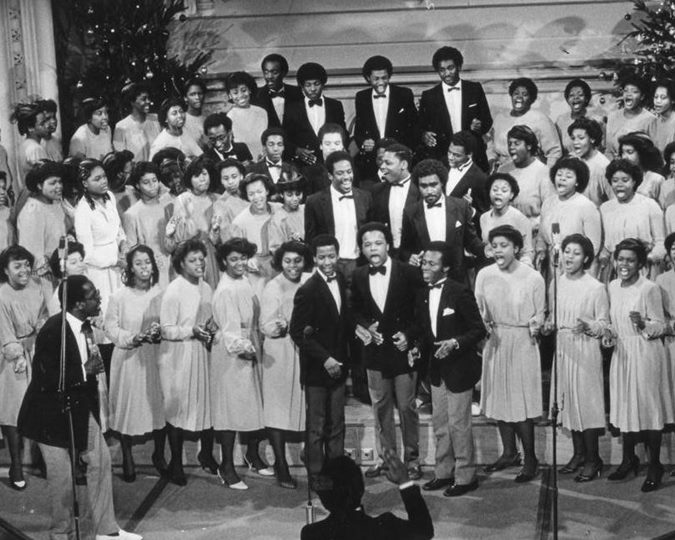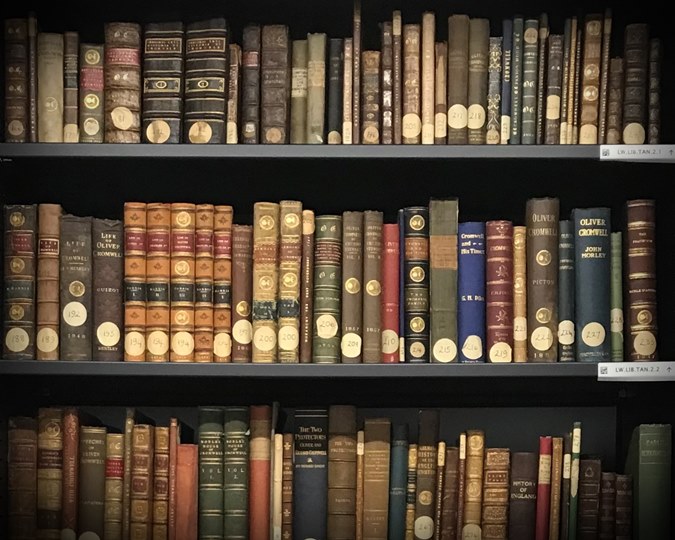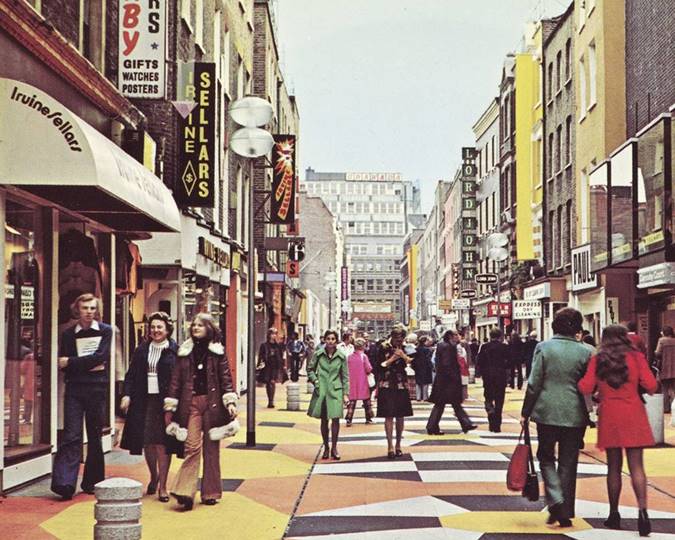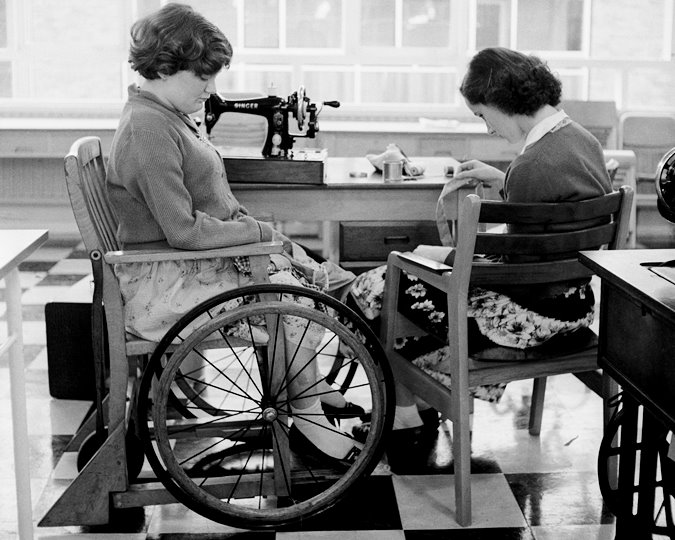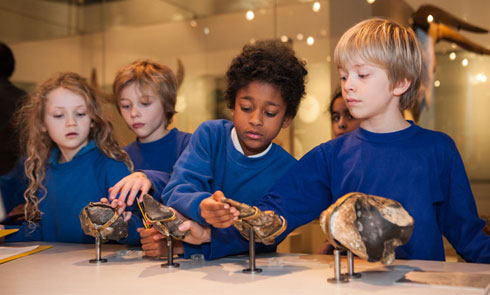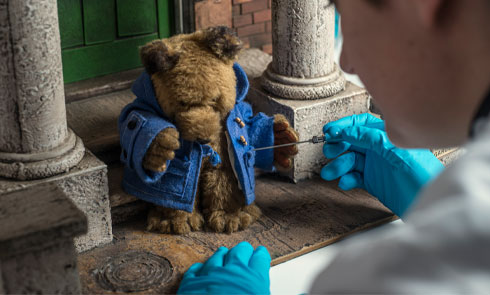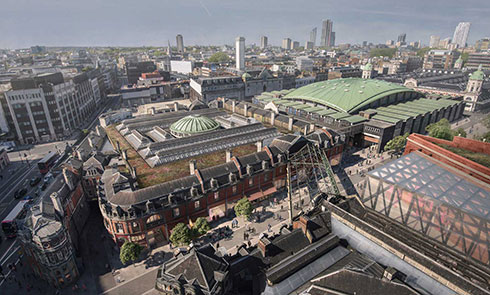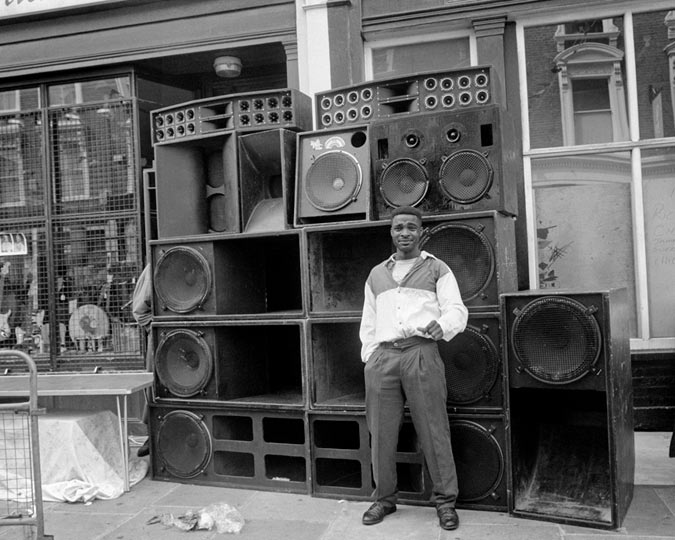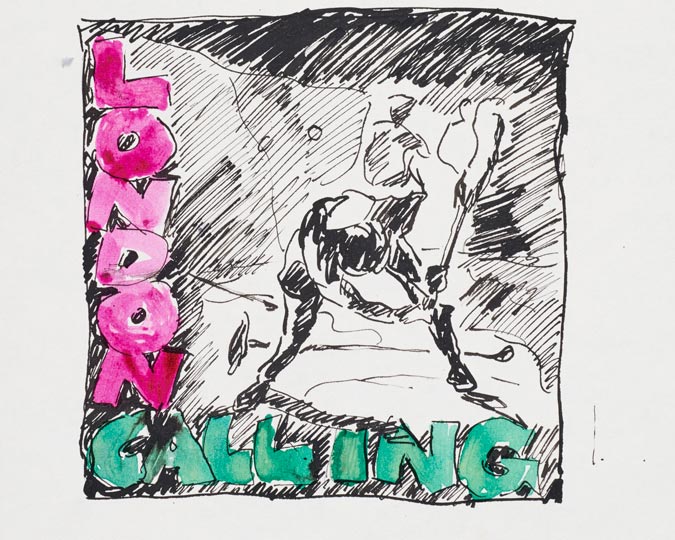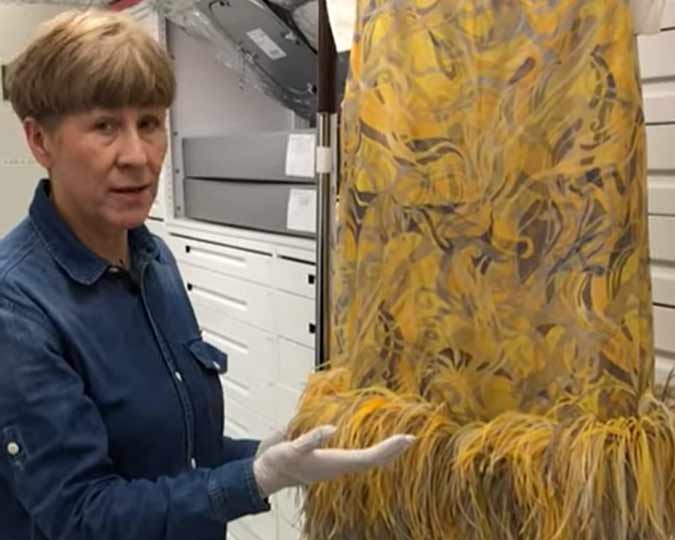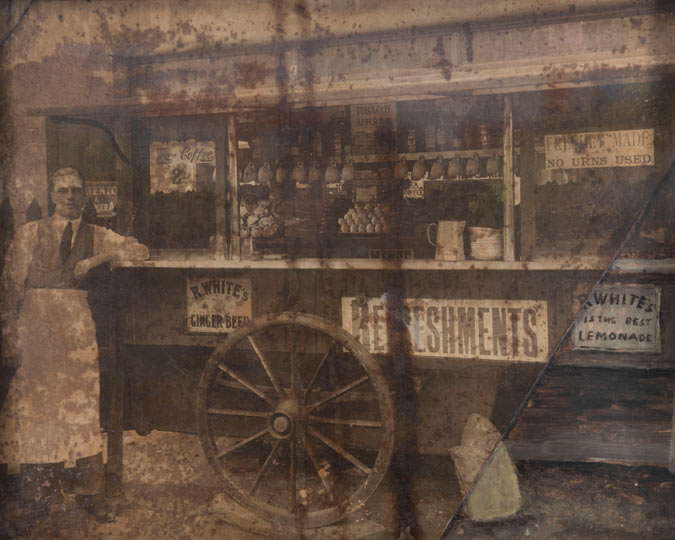For International Clash Day 2020, the Museum of London is hosting an evening of discussion around Punk and race, past and present. Our panel will discuss anti-racism, social inclusion, and how the problems faced by Punks in the 1970s are still present in the scene today.
Stephanie Phillips is a journalist and a writer who specialises in the punk and DIY scene. She’ll be one of the speakers at the Museum of London on International Clash Day 2020. Stephanie also plays in punk band Big Joanie, and is one of the founders and organisers of Decolonise Fest, a music and arts festival by and for people of colour in the punk scene. Stephanie kindly talked to us ahead of the Clash Day panel.
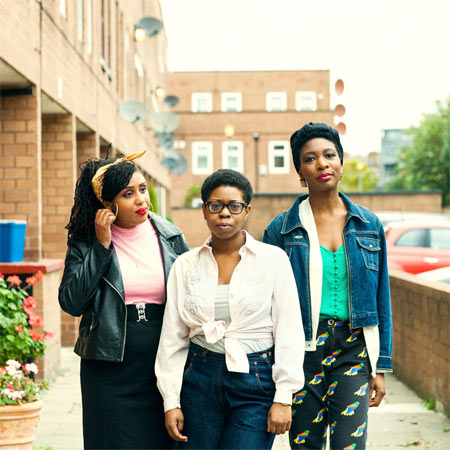
Stephanie Phillips's band Big Joanie
What was it that inspired you to found Decolonise Fest?
Stephanie: We wanted to celebrate the work that people of colour have done in the punk scene, and to create a space that would welcome and inspire people of colour. In the society that we’re in, there are so many issues around race and racism. When you enter the punk scene, which remains majority white, people can feel excluded or unwelcome. People of colour might drop out of the punk scene or just watch it from afar, never going to gigs or engaging more deeply with something they love.
That’s why we created Decolonise Fest. We can be the space for people of colour that they’ve wanted ever since they were a teenager. We get people in their fifties bringing their families. For many punks it’s the first time they’ve been at a gig that’s majority people of colour. This is going to be our fourth year and every year the festival gets bigger.
The Museum of London’s panel discussion will also feature other speakers like Celeste Bell, daughter of Punk legend Poly Styrene, lead singer of X-Ray Spex. Stephanie spoke about the role of Decolonise Fest in recognising punk’s diverse and feminist history.
Stephanie: People of colour have always been present in the punk scene. There are the well-known faces like Poly Styrene, but punks in the seventies were listening to reggae, they were taking part in the immigrant culture which was thriving in London at the time. Punk picked up on that culture of resistance.
It’s taken longer for women and people of colour to be taken seriously- you had bands like the Slits who were around at the same time as the Clash, but they were seen as just silly girls. It took years to understand the way that they were approaching it, the different genres they were weaving in.
We’ve been here from the start, and part of Decolonise Fest is about recognising that.
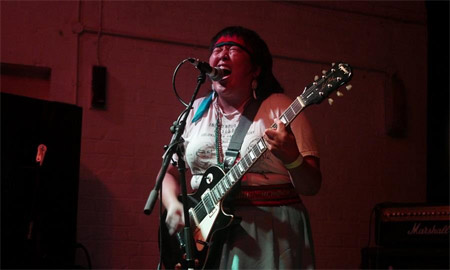
Decolonise Fest 2019
What makes Decolonise Fest stand out from other punk music festivals?
We are specifically creating a space for people of colour. If anyone wants to join that space and be respectful, they can, but it will not be centred on them. For that weekend, the venue that we’re taking over Is now our space and we make it the world that we want to be in. Part of that Is making sure that everyone who needs to can get in- we have a lack of funds policy, so if people can only pay £5 they can still get in.
Part of it is about having new conversations, moving away from a nostalgic view of the scene’s history- often we’ll be making the past look unrecognizable if you look at punk through rose-coloured spectacles. Famous bands like the Clash are lauded now, but at the time they started they were scrappy dirty punks. It’s taken longer for groups made up of women and people of colour, like Echobelly or the Slits, to achieve that recognition.
What inspires you about the punk scene?
The best thing about punk is that it can make a positive change to your life. Punk is a culture of creating rather than consumption- that’s a powerful tool to give people. That’s how Decolonise Fest started out- I realised we could just take things into their own hands. That’s especially necessary for people of colour.
That’s the main reason that I like punk- it’s not just energetic or exciting, it’s about being the individual that you want to be, changing your community and your society to let you express your individuality. There’s so much freedom and opportunity that you can get from punk, it feels wasted when it’s restricted only to a middle class, white audience.
Hear more from Stephanie Phillips at Punk and Race, Past and Present, at the Museum of London on 8 February 2020.

